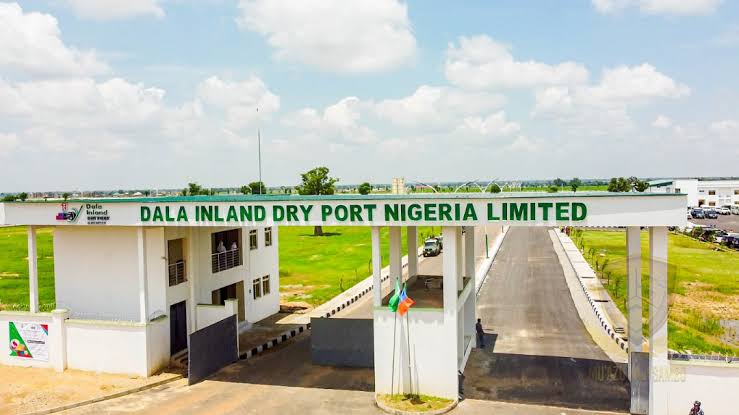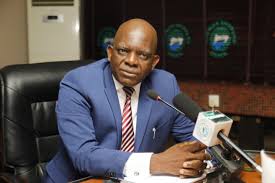
Despite significant investments in their creation, Inland Dry Ports (IDPs) across Nigeria, are encountering formidable challenges hindering their operationalization. This is even as stakeholders have questioned the status of these ports.
Recall that the development of the IDPs was initiated by the Nigerian Shippers’ Council and are being facilitated through Build, Own, Operate, and Transfer (BOOT) agreements under the Public Private Partnership (PPP) framework.
The IDPs were designed to function as hinterland equivalents of seaports, strategically located to receive containers by rail or road from seaports for customs examination and clearance, among other authorized operations.
However, a comprehensive investigation by Shipping Position Daily has uncovered a troubling pattern of challenges that have impeded their operations, despite Federal Executive Council (FEC) approval granted about 17 years ago for their establishment.
The FEC had granted approval for the establishment of Inland Dry Ports in March 2006, initially at six locations across the country in: Isiala-Ngwa in Abia State, Erunmu in Ibadan – -Oyo State, Heipang in Jos – Plateau State, Funtua in Katsina State, Maiduguri in Borno State, and Dala in Kano State.
However, Kaduna Inland Dry Port Limited, which was not part of the original six approved in 2006, was commissioned by the Federal Government in 2018 as the first port of origin for exports and the port of destination for imports for hinterland and landlocked neighbouring countries without sea ports, such as Niger Republic and Chad.
Among these IDPs, findings by our correspondent revealed that Kaduna Inland Dry Port seems to be performing better than others though operating below its capacity with just about 10 to 15 truckloads of goods received at its facilities from seaports in Lagos, which are then transported to the far northern states.
In a recent chat with journalists Mr.Rotimi Raimi-Hassan, the General Manager of Kaduna Inland Dry Port lamented the absence of rail links, citing it as a major challenge impeding the dry port’s operations. He lamented that the absence of rail linking the dry port has significantly affected its operations
On the Ibadan Inland Dry Port, our correspondent gathered that paucity of fund have hindered construction and equipment procurement, while political interference has also caused delays and frustrated stakeholders.
According to our findings, by the Full Business Case Compliance, the Ibadan Dry Port is estimated to cost about US$94 million. Land compensation issues for the land where the IDP is situated have also contributed to the delay.
The IDP proposed for Isiala Ngwa in Abia state, faces similar challenges due to infrastructure deficiencies, including inadequate road networks and power supply, along with regulatory hurdles and land acquisition disputes. Data from the Nigerian Shippers Council that was obtained by our correspondent indicates that the dry port is only at a 5% completion stage.
In the case of the IDP in Heipang, Jos, security concerns in the region have raised safety issues for cargo and personnel, leading to increased project expenses and delays. The port is currently at 48% completion.
Although the Dala Inland Dry Port in Kano is completed and declared as a port of origin and destination, regulatory bottlenecks and inadequate infrastructure have complicated its development, leading to delays in operationalization and increased costs.
In a conversation with our correspondent, Ahmad Rabiu, the Managing Director of Dala Inland Dry Port, emphasized key aspects of the port’s development. He noted that the port, declared as a port of origin and destination in August 2022 and commissioned by President Muhammadu Buhari in January 2023, underwent extensive preparations which included construction, equipment acquisition, and the establishment of robust ICT infrastructure aimed at minimizing contact between personnel and cargo.
He stated that despite challenges, the Inland Dry Port has faced since inception, including policy changes and bottlenecks associated with the concept of dry ports, which was relatively new at the time, the Dala Inland Port had made significant progress, and the port was actively engaged in exporting goods to various countries.
Rabiu also expressed optimism about the future, citing the upcoming season for exporting sesame and soya beans as a positive development.
He disclosed that: “Dala Inland dry port that was declared as a port of origin and destination by the Minister of Transportation on 5th August 2022 and was gazetted in September 2022 was commissioned by President Muhammadu Buhari on the 30th of January 2023. It was among his very closing projects for commissioning.”
He told our correspondent that: “We had before then done everything that was needed regarding construction works, acquisition of equipment, and putting our ICT infrastructure on the ground. We had robust ICT infrastructure because of the need for minimum contact between man and cargo.”
“We established linkages at all the ports and even international borders, declared engagement with exporters, importers, and everybody. We had robust engagement, and had some, if you like, retreats with customs and other stakeholders at Yola, the home of the Chairman of the Dala Inland dry port. We had so many engagements with the clearing agent in Kano at the site. We visited so many shipping lines and we established an initial agreement with SIFAX Port and Cargo, so that we are serviced by both Port and Cargo and their Ijora Terminal”.
Giving an insight into the delays, Rabiu explained that: “One of the major issues was policy changes because after appointing us in 2003, President Obasanjo said the concept needed to change because we were under a simple term of PPP where the government was building, equipping, and mining. And all we were going to do was to just come with our expertise, run the organization to attain a certain threshold of success.”
“The whole concept of dry port is new; therefore there were bottlenecks at every turn on the way. So we have been following up through the Nigerian Shippers Council with the Nigerian Customs Service and the Ministry of Transportation and all those who have some role to play to make sure that activities flow seamlessly.”
Giving an insight into how far the Dala port has fared, its managing director said: “As we speak today, what I can tell you is that we were able to send the first export container out of Kano, sealed at Kano and not refilled, not subjected to any further examination anywhere, but left to the country for Turkey in May.
“Since then, we have sent some others to China and other parts, some parts of Europe, and I think there are some that are just currently going to America, to the US, that is. So we are in business as far as that is concerned and we are also receiving cargo from all over the world through the seaports; different seaports. We are getting all imports through that because imports do not have a challenge except that it has gone reasonably down due to the global if you like, economic challenges. But for the export, they have not been, we have not seen the volume yet. It is just now in the month of September moving into October that the season is actually commencing now for sesame and soya beans. It is just now the season is commencing. So definitely we are on course, a lot of things likely coming on stream and we definitely”, he said.
For the IDP in Funtua in Zamfara state, funding issues and land compensation disputes with local communities have also led to protracted legal battles, escalating project costs and causing uncertainty despite its commissioning last year by President Muhammadu Buhari.
For Jauri, an inland dry port in Maiduguri in Borno state, insecurity in the region has been a significant challenge, affecting both construction progress and the overall budget. The safety of cargo and personnel remains a critical concern.
However, all efforts to get reactions about the current state of the inland dry ports from the Nigeria Shippers’ Council proved abortive as calls and text messages were sent to its Executive Secretary; Barr. Emmanuel Jime as well as those sent to the Director of Consumers Affairs; Chief Cajetan Agu were not responded to.















